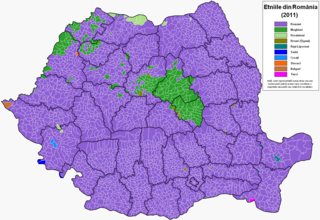See also
| This disambiguation page lists articles associated with the title Banitsa. If an internal link led you here, you may wish to change the link to point directly to the intended article. |
Banitsa (sometimes spelled Banica) may refer to:
| This disambiguation page lists articles associated with the title Banitsa. If an internal link led you here, you may wish to change the link to point directly to the intended article. |

The Balkans, also known as the Balkan Peninsula, are a geographic area in southeastern Europe with various definitions and meanings, including geopolitical and historical. The region takes its name from the Balkan Mountains that stretch throughout the whole of Bulgaria from the Serbian–Bulgarian border to the Black Sea coast. The Balkan Peninsula is bordered by the Adriatic Sea in the northwest, the Ionian Sea in the southwest, the Aegean Sea in the south, the Turkish Straits in the east, and the Black Sea in the northeast. The northern border of the peninsula is variously defined. The highest point of the Balkans is Mount Musala, 2,925 metres (9,596 ft), in the Rila mountain range, Bulgaria.
Baba and similar words may refer to:
Bogdan or Bohdan is a Slavic masculine name that appears in Bulgaria, Russia, Ukraine, Serbia, North Macedonia, Slovenia, Croatia, Romania, Moldova, Bosnia and Herzegovina, Montenegro, the Czech Republic and Poland. It is derived from the Slavic words Bog/Boh, meaning "god", and dan, meaning "given". The name appears to be an early calque from Greek Theodore with the same meaning. The name is also used as a surname.

Symvoli is a village in the eastern part of the municipal unit of Kormista in the Serres regional unit, Macedonia, Greece. It is located on the left bank of the river Angitis, in the easternmost part of the regional unit, near the regional unit of Drama. The community includes the settlement Ano Symvoli.

Vevi is a village located in the municipal unit of Meliti in Florina regional unit, Macedonia, Greece. The village is passed by two national roads which lead to Thessaloniki, Florina, Amyntaio, and Kozani. Additionally, it has a railway station on the line between Florina and Thessaloniki.

Banitsa is a Bulgarian traditional pastry dish, prepared by layering a mixture of whisked eggs, natural yogurt and pieces of white brined cheese between filo pastry and then baking it in an oven.

About 10.5% of Romania's population is represented by minorities. The principal minorities in Romania are Hungarians and Romani people, with a declining German population and smaller numbers of Poles in Bukovina, Serbs, Croats, Slovaks and Banat Bulgarians, Ukrainians, Greeks, Jews, Turks and Tatars, Armenians, Russians, Afro-Romanians, and others.
Dobra may refer to:
Banica may refer to:

Banitsa is a deserted former village in Serres regional unit, northern Greece. Its ruins are situated some 15 km north-east of the town of Serres, near the present-day village of Oreini, on the southern slopes of the Vrontous mountains. During the Ottoman period it had a Bulgarian population. The village was destroyed by the Greek Army during the Second Balkan War, and the population migrated to Bulgaria. Its inhabitants settled in Mehomiya, Bachevo, Nevrokop, Sveti Vrach and Novo Delchevo.
Ruda may refer to:
Buk or BUK may refer to:
East-Central Europe is the region between German-, West Slavic- and Hungarian-speaking Europe and the Eastern Slavic lands of Russia, Belarus, and Ukraine. Those lands are described as situated "between two": "between two worlds, between two stages, between two futures". In the geopolitical sense, East-Central Europe can be considered alongside Western and Eastern Europe, as one of the "Three Europes".

Bănița is a commune in Hunedoara County, Transylvania, Romania. It is composed of three villages: Bănița, Crivadia (Krivádia) and Merișor (Merisor).

Banica is a village in the administrative district of Gmina Sękowa, within Gorlice County, Lesser Poland Voivodeship, in southern Poland, close to the border with Slovakia.

Banica is a village in the administrative district of Gmina Uście Gorlickie, within Gorlice County, Lesser Poland Voivodeship, in southern Poland, close to the border with Slovakia. It lies approximately 9 kilometres (6 mi) south-west of Uście Gorlickie, 22 km (14 mi) south of Gorlice, and 105 km (65 mi) south-east of the regional capital Kraków.

The Battle of Lerin or Battle of Florina or Chegan offensive was an offensive operation of the Bulgarian army during the First World War between 17–28 August 1916 in which they conquered the city of Florina, but failed to take Chegan.